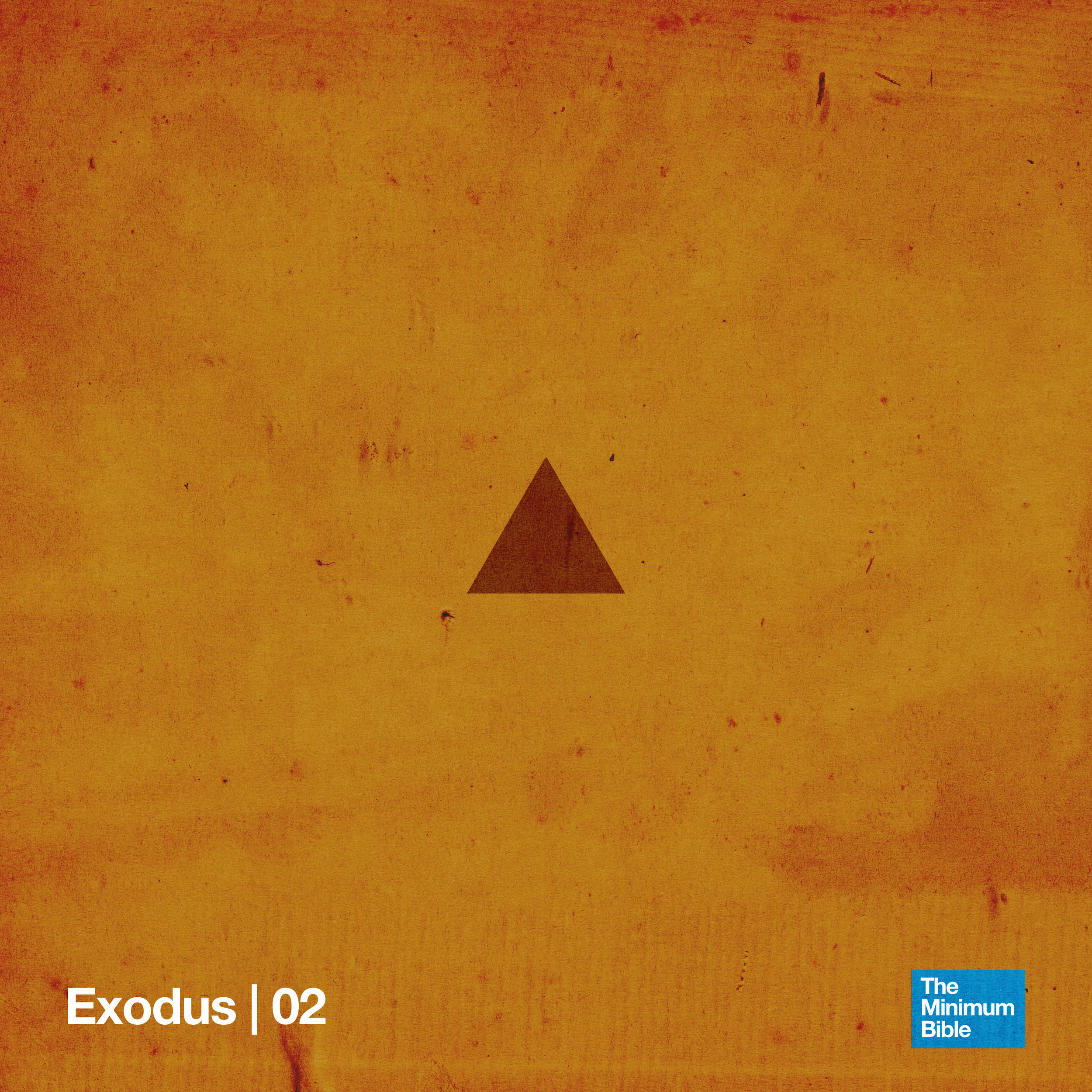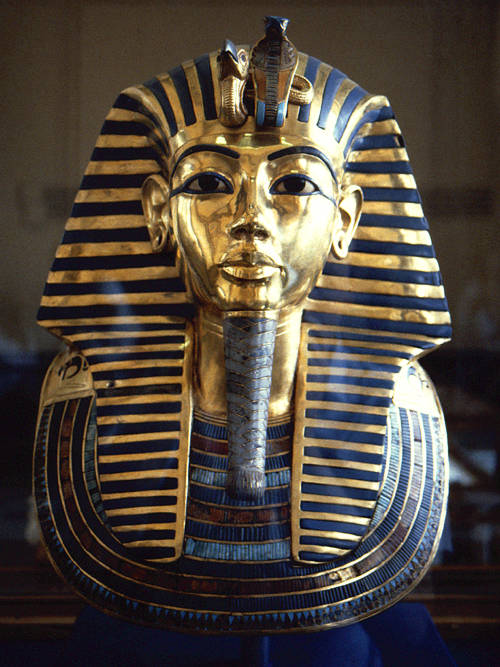What I Did on My Summer Vacation (And You Can, Too!) [#EatThisBook - Exodus 12-13]
Even though I only work one (half) day a week, it's still good for me to get away on vacation from time to time. My family was blessed to do a fair among of traveling this summer, including a European Grand Tour. In the last few months we've been through several European countries and a few different states, but wherever we went, we made sure to do one thing, no matter what. The one thing we did is easy for you to do, too, dear reader, and the best part is, you have my money-back guarantee? that this one thing will change your life.... We went to church.I know it sounds crazy, but it's really true: we actually went to church?while we were on vacation!This summer we visited:
We went to church.I know it sounds crazy, but it's really true: we actually went to church?while we were on vacation!This summer we visited:
- a charismatic non-denominational church in Oxford, England;
- an African Methodist church in Munich, Germany;
- a Roman Catholic mass--in Flemish!--in the beautiful Church of Our Lady in Bruges, Belgium (I was lost during the sermon but was able to follow the communion liturgy pretty well);
- an American Baptist church on Cape Cod, MA;
- and a small Methodist church in my wife's small Virginia hometown.
The experiences I had while worshipping in other churches are among my favorite memories from what was a great summer.
Moses Creates a New Holiday
In my church, we are in the midst of a 90 scripture reading campaign called Eat This Book. We're currently reading through the book of Exodus, and today read the passage in which Passover is instituted as an annual ritual of remembrance for the Israelites. (I'm supposedly blogging each day about that day's assigned chapter, but today's post is a combined post of Exodus 12 and 13.) One idea struck me in the instructions Moses gives the people regarding the Passover: the Passover is to help the Israelites?remember.
One idea struck me in the instructions Moses gives the people regarding the Passover: the Passover is to help the Israelites?remember.
24You shall observe this rite as a perpetual ordinance for you and your children.25When you come to the land that the?Lord?will give you, as he has promised, you shall keep this observance.26And when your children ask you, What do you mean by this observance???27you shall say, It is the passover sacrifice to the?Lord, for he passed over the houses of the Israelites in Egypt, when he struck down the Egyptians but spared our houses.?? And the people bowed down and worshipped.... (Exodus 12:24-17)8You shall tell your child on that day, It is because of what the?Lord?did for me when I came out of Egypt.?9It shall serve for you as a sign on your hand and as a reminder on your forehead, so that the teaching of the?Lord?may be on your lips; for with a strong hand the?Lord?brought you out of Egypt.... (Exodus 13:8-9)14When in the future your child asks you, What does this mean?? you shall answer, By strength of hand the?Lord?brought us out of Egypt, from the house of slavery.15When Pharaoh stubbornly refused to let us go, theLord?killed all the firstborn in the land of Egypt, from human firstborn to the firstborn of animals. Therefore I sacrifice to the?Lord?every male that first opens the womb, but every firstborn of my sons I redeem.?16It shall serve as a sign on your hand and as an emblem?on your forehead that by strength of hand the?Lord?brought us out of Egypt." (Exodus 13:14-16)
The Passover is to be observed yearly, so that every generation will learn and remember that the children of Israel were slaves in Egypt, but the Lord brought them out with a mighty hand and an outstretched arm. They are to remember who they are and whose they are.
Some Things Don't Change
If you know anything about the Old Testament, you'll know that the Israelites are in constant danger of forgetting their unique heritage and instead returning to the slavery of false gods.I'm not an ancient Israelite, but I am just as prone to forgetting my identity as they were, perhaps more so. Our culture is a culture obsessed with getting and spending, and it's a culture that is doing everything possible to make me believe that I am nothing but a consumer. Worship, then, becomes a way of remembering that we are more than just consumers. I appreciate how Walter Brueggemann puts it:
The biblical community of faith is a community of memory, working at its precious identity in a culture devoted to amnesia. The market forces that encourage a consumer consciousness are largely controlled by ideology that wants to abandon the past and forsake the future in order to live in the absolute "now." Those who neither remember nor hope are profoundly vulnerable to consumerism, busy filling the void left be eradication of that extra dimension of historical awareness that belongs to healthy humanness. Thus when the community says, "This do in remembrance," it is not engaged in a mere history lesson or a simple act of piety. It is, rather, engaged in an act of resistance against an ideology that will destroy any Passover-driven humanness."
Weekly worship is a necessary reminder that you and are I not merely consumers. More than that, weekly worship reminds us, that contrary to how things often seem, God is in control and fear is always a lie. Those are messages I need to hear at least once a week.So, you need to be in church every week. Otherwise, how will you remember the truth?
Three Things I Remember Every Time I Go to Church
The following lessons are available to me every week in my home church, but for some reason they were made more clear to me as my family visited other churches this summer, thousands of miles away.When I go to church:
- I remember that it's not about me. Most of my life I think mostly about me. (May God heal me from self-obsession.) But on Sunday morning, in church, I'm reminded otherwise as I sing, pray, and think about the Lord. I'm not at the center of reality. It's good to remember that.
- I remember that I'm not the only one. When I worship with other Christians with whom I have nothing in common except faith in the Lord, I am always encouraged: there are people all over the world, in all kinds of languages, who are walking this journey with me.
- I remember that Christ is risen from the grave. It's been a summer of evil headlines, and it's easy to lose hope and become world-weary. But on Sundays I'm reminded that the same Lord who heard the cry of the Israelites and brought them out of slavery in Egypt is the same Lord who was crucified and raised from the dead and the same Lord who promises that he has overcome the world and that ultimately we have nothing to fear.
So, that's what I did on vacation this summer: I went to church. (At least on Sundays, not the other days of the week. I mean, I'm not?religious about it.)You should try it. It will change your life. I guarantee it?.
Is Life Fated, Or Are We Free? [#EatThisBook - Exodus 10]
How can Pharaoh be blamed if God makes him tyrannical? Are you and I free to choose in life, or are our choices fated?Three times?in Exodus 10 we read that the Lord hardens Pharoah's heart so that Pharaoh will not relent and let the??Israelites go free (v. 1, 20, 27). How is that fair? If Pharaoh has no choice, then how can he be held responsible for his actions? Perhaps, though, Pharoah's free will and God's sovereign will are not mutually exclusive.I found this paragraph from Walter Brueggemann to be helpful in thinking through the relationship between "fate and choice:"
It is perfectly credible, given what we have seen of recalcitrant tyrants in modern times, that Pharaoh should choose to be destroyed rather than to yield (v. 20). Even such choices, however, do not (according to the narrator) fall outside Yahweh's sovereign intention. The juxtaposition of?fate and choice in Pharoah's behavior is not unlike that of Saul in the narratives of 1 Samuel. He is, indeed, fated by Yahweh to fail, but he also chooses his own destruction in a series of choices. Paul Ricoeur has observed about the power of sin in the narrative of Genesis 3 that the human couple are both?victims?and?perpetrators of their destruction. So it is with Saul, and so it is with Pharaoh. And so it is with all of our hard-heartedness in which we choose what has been given us."
You're Not Exempt From Cause and Effect [#EatThisBook - Exodus 9]
The Lord sends plague after plague in Exodus 9, and each time, though he momentarily seems to waver, Pharaoh refuses to relent. Why? Why does he persist in a course of action that will inevitably lead to his destruction? Better yet: why do we?One of the perverse parts of human nature: we will persist in behaviors that are?obviously?hurting us. Why? I think it's because we prefer to pretend that the link between cause and effect won't actually apply to?us. Other people need to worry about cause and effect, but we're exempt. As soon as the Lord removes a plague, Pharaoh believes that it won't happen again, that he can continue to oppress the Israelites without facing that effect. And then the Lord sends another plague. Pharaoh acts, and the Lord sends the consequence.Where are you ignoring cause and effect today?
As soon as the Lord removes a plague, Pharaoh believes that it won't happen again, that he can continue to oppress the Israelites without facing that effect. And then the Lord sends another plague. Pharaoh acts, and the Lord sends the consequence.Where are you ignoring cause and effect today?
Who's Responsible for Pharaoh? [#EatThisBook - Exodus 8]
Anyone reading the account of the plagues in Exodus comes upon a troubling phenomenon: sometimes Pharaoh hardens his own heart (8:15), whereas other times (7:3) the Lord hardens Pharoah's heart. Which is it? If it is the Lord who causes Pharoah's heart to be hard, then how is it fair for Pharaoh to be held responsible for his actions?Short answer: I don't know.Longer short answer:The Bible is not a legal brief, written and revised countless times by people trying to close every possible loophole for future liability. The Bible is not an airtight mathematical theorem?of a complex geometry problem. The Bible is instead a collection of writings that reflect God's interactions with men and women over the centuries. The Bible tells the great story of redemption; it does not attempt to answer every question, reconcile every inconsistency, and remove every nuance. If it were a legal brief, you'd need to fire your lawyer. But, it's not. The purpose of the Bible is not to defend God from a lawsuit; one of the purposes of the Bible is to tell us what we need to know about God's plan of salvation.I've wondered recently if perhaps the parts of the Bible that give us difficulty, that trouble us, are perhaps the parts of the Bible to which we most need to pay close attention. Maybe God?wants parts of the scripture to trouble us. Maybe the parts that give us pause are the parts over which we most need to pause.Beware Theological Schemes That Explain?EverythingI tend to be wary of theological explanations that have an answer for every difficult spot in the scriptures. It is true that sometimes we have difficulty in the scriptures because we haven't studied enough, and in these times explanations can be helpful and clear up a perceived difficulty that really isn't a difficulty at all. But other times, the scripture is just difficult, and no one can really give a satisfactory explanation. The Bible is not a legal brief--ambiguity is allowed. The Bible is not a mathematical proof--you are allowed to have remainders that don't completely fit into the system. Two Ways of Understanding Pharoah's Hard Heart
Two Ways of Understanding Pharoah's Hard Heart
- Maybe we take the text at face value: sometimes Pharaoh deliberately resists God, and sometimes God supernaturally increases Pharaohs resistance. This seems unfair, but our perspective is admittedly limited, and maybe the Exodus can only happen if Pharaoh becomes more and more stubborn. Maybe things have to get worse before they can get better. And, as the Apostle Paul writes in Romans 9:14-19, we are not in the position to judge the Lord's actions. We are not God.
- Maybe God just gives Pharaoh over to the desires of his heart. Maybe God doesn't?make?Pharaoh do anything: maybe God just lets it happen. Maybe God knows that Pharaoh is not going to relent, but God's foreknowledge might still allow space for Pharoah's free (wicked) choice.
I don't have a good answer to this theological problem, but maybe that's okay. After all, life is not neat; life does not conform to a legal brief or a mathematical theorem. And neither does scripture.What do you think?
Don't Expect Compromise [#EatThisBook - Exodus 7]
In Exodus 7 we read about the first of the terrible plagues that the Lord inflicts on Egypt. Why? Why can't God be more easy-going?No one wants to hear it, but it's true: compromise isn't always possible, and sometimes conflict is unavoidable.In Exodus 7, Moses has asked Pharaoh to let the Israelites leave. Pharaoh refuses. In fact, Pharaoh will never agree. Exodus 7:13 describes Pharoah's heart as hard, i.e., he is utterly opposed to anything Moses has to say.We prefer conversation to conflict, and we'd like to look for compromise whenever possible. But sometimes conflict is unavoidable. One of the dominant themes of Exodus is that there are forces in this world utterly opposed to the things of God. Those forces will not compromise; the only course of action is conflict. C.S. Lewis, speaking in eschalotigcal terms, puts it like this:
C.S. Lewis, speaking in eschalotigcal terms, puts it like this:
There is no neutral ground in the universe: every square inch, every split second, is claimed by God and counterclaimed by Satan."
Don't think that the evil in this world will go without a fight. Either God wins, or evil wins: there's no compromise. Either Pharaoh keeps oppressing the Israelites, or Moses leads them to freedom: there's no compromise.I don't like conflict any more than you do, but sometimes conflict is unavoidable:
- the sex traffickers in our city are not going to be won over by reason and conversation; they'll have to be opposed and fought tooth and nail;
- your marriage is not going to just be healed; you'll have to ruthlessly fight for it;
- I can't just compromise with the selfishness in my heart; God needs to heal me from it.
The plagues God sends over Egypt are terrible and uncompromising, but they are necessary, because compromise isn't always possible. Direct conflict between God and Pharaoh cannot be avoided.
3 Reasons Why You'd Better Be Stubborn [#EatThisBook - Exodus 6]
Anyone can start something. Starting is easy. But it's what happens in the middle between starting and finishing that makes things difficult. And this is why you are going to have to be stubborn.
3 Reasons You'll Need to Be Stubborn
- Hope is hard. The Israelites have been so oppressed and downtrodden that believing that life could be better has become impossible for them: "Moses told this to the Israelites; but they would not listen to Moses, because of their broken spirit and their cruel slavery" (6:9). At work, at home, wherever you find yourself, you'll need to stubbornly insist:?things can be better! Many people have given up that hope long ago.
- Doubt will creep in. Moses, having encountered difficulty in front of him (in Pharaoh) and behind him (in the Israelites) inevitably begins to wonder "And how exactly is this going to work?" (6:12). When you doubt creeps in, you'll need to stubbornly insist:?fear is a liar and doesn't have the last word.

- Love is stubborn. Love bears all things, believes all things, hopes all things, endures all things (1 Corinthians 13). Love is stubborn. God loves his people and will not give up on them, no matter what (6:2-8). You and I have been created in the image of God and called by God to love this world. It's a world in desperate need of stubborn, unsentimental love.
Where do you need to add some stubbornness today?
No One Wants You to Do the Right Thing [#EatThisBook - Exodus 5]
People will tell you that they want you to do the right thing. But, people are lying. People don't want you to do the right thing if it will cause problems. And doing the right thing?always causes problems.See, if it were easy to do the right thing, the right thing would already be done. But doing the right thing is difficult.If there were no opposition to doing the right thing, the right thing would already be done. But there is opposition to doing the right thing. Bitter opposition. Those who do the right thing make enemies.Your friends and allies will tell you they want you to do the right thing, but when you start doing it, you will cause problems. You will stir up trouble. You will cause controversy. When you start causing problems, your friends and allies will tell you to take it easy, to stop being so radical, that you catch more flies with honey than with vinegar, that the old system wasn't perfect, but hey, what is?Of course your enemies don't want you to oppose them. Everyone knows that. Your enemies want the freedom to persist in doing the wrong thing without opposition. That's obvious. But the sad truth about life is that your allies (or those who should be your allies) often do not want you to oppose your enemies either. Your erstwhile allies?will tell you that your doing of the right thing is causing problems for?them. "Can't you tone it down a bit?" "You are giving us a bad name." "Things were better before you started making trouble."It wasn't just the Nazis who opposed Bonhoeffer--so did some other members of the Confessing Church, that church whose very reason for existing was to oppose the Nazis, who thought Bonhoeffer was too radical. "Dietrich, tone it down a bit. We agree with you, but you are giving us a bad name. You are causing too much trouble." So, Exodus chapter 5. Moses and Aaron are sent by the Lord to free the children of Israel from the oppressive hand of Pharaoh, and if you know anything about human nature, you should be able to predict what happens next:
So, Exodus chapter 5. Moses and Aaron are sent by the Lord to free the children of Israel from the oppressive hand of Pharaoh, and if you know anything about human nature, you should be able to predict what happens next:
- Moses and Aaron confront Pharaoh.
- Pharaoh doesn't like being confronted; consequently, he doubles-down on his evil and makes life worse for the Israelites.
- The Israelites don't like worse--who would?--and they complain to Moses and Aaron and blame them for their worsening predicament.
- Moses doesn't like being blamed for doing the right thing, and so he blames God for the whole thing.
No one wants you to do the right thing, at least, not if it will cause trouble. And doing the right thing always causes trouble.You've been warned.
Fear is Always a Lie [#EatThisBook--Exodus 4]
We're always afraid that what we have or what we are isn't enough. But that fear is always a lie because the Lord always gives exactly enough.Moses is afraid he won't be persuasive enough; Moses is afraid he won't be eloquent enough; Moses is afraid that one man won't be enough.But note that the Lord provides for Moses's need?out of what he has already given Moses.Moses is afraid he won't be persuasive enough, but the Lord uses the shepherd's staff Moses already has to persuade the people (4:1-5).Moses is afraid he won't be eloquent enough, but the Lord uses the mouth and mind Moses already has to speak to the people (4:10-12).Moses is afraid that one man won't be enough, but the Lord uses the brother Moses already has to be his spokesperson and partner (4:14-17, 27-31).We're afraid that what we have or what we are isn't enough. But the Lord has given us exactly what we need to accomplish exactly what he needs for us to accomplish.Where are you feeling like you don't have enough? Fear is a liar. P.S. Don't ask me about 4:24-26; I have no idea....
"God" Isn't God's Name (#EatThisBook Exodus 3)
Does God have a name? Zeus has a name; Marduk?has a name; Baal has a name. What's the name of the God of the Hebrews?Exodus 3 is important for (at least) two reasons. First, it's the account of one of the most consequential callings in history: the calling of Moses to be God's agent to free God's people. It's no exaggeration to say that the fate of the world hangs on Moses's curiosity to see the bush that burns without being consumed. Without Moses's turning aside, there's no Exodus, no Israel, no David, no Temple, no Judaism, and no Jesus.Second, Exodus 3 is important because we learn that God has a name. God's name is four Hebrew letters that from a very early time pious Jews reverently refused to pronounce. In fact, when they came upon the name of God (translated in Exodus 3:14 as "I AM WHO I AM") they would just say the word "Lord" instead, even though "Lord" isn't spelled like that.English translators of the Bible preserve this ancient Jewish reluctance to say the name of God by a peculiar technique that you've probably seen for years and never noticed.
- When the Hebrew says "God," English bibles say "God"
- When the Hebrew says "Lord," English bibles say "Lord"
- But, aside from here in Exodus 3 when it's translated "I AM," whenever the Hebrew says the special four letter name of God (called the tetragrammaton by scholars), English bibles say "LORD." All caps indicates that it's the special name for God that the Jews would have pronounced as "Lord."
God isn't an impersonal god. God is the LORD, and he introduces himself to Moses in an astoundingly gracious act of revelation.Whole libraries have been written about Exodus 3 and the name of God, but I'll stop there.What else struck you about today's passage?
#EatThisBook - Exodus 2
The Hebrew word for "ark" occurs in only two places in all of the Bible. Once in the Noah account in Genesis, and the second time?The "papyrus basket" that the Levite woman uses to hide the baby among the bulrushes is the Hebrew word for "ark." Isn't that fascinating?Some questions from today's chapter:
- Why call the basket an "ark"? What is the author implying?
- How might?Moses's strange upbringing--a Hebrew raised as an Egyptian--prepare him for the task the Lord has for him?
- How did word get out that Moses killed that Egyptian overseer?
- What is it that God remembers in 2:24? Why does that matter?
#EatThisBook - Exodus Chapter 1
Exodus begins in medias res with a listing of the names of the children of Jacob. (Jacob is also called Israel, and so his children are called the "Israelites." The Hebrew name for the book we call Exodus is "Names," taken from the first word of the Hebrew text of Exodus.) But who is Jacob, how did he have so many children, and how did they all end up in Egypt? To learn all that, you'll need to read Genesis....A few notes about Exodus 1:
- The Israelites are an immigrant people to Egypt, but the Egyptians, who initially welcomed them, begin to fear them because they grow numerous.
- The Egyptians decide to start oppressing the Israelites, but their oppression has the opposite effect (v.12): "The more they were oppressed, the more they multiplied and spread."
- Pharaoh then commands the death of all the Hebrew baby boys. In other words, Pharaoh plans to commit genocide. Some things never change....
- In Exodus 1, we already see what will be the main theme of the first half of the book: a struggle between Pharaoh, the divine king of Egypt, and the Living God. Things will get interesting.
Leave thoughts or questions in the comments below.

![Is Life Fated, Or Are We Free? [#EatThisBook - Exodus 10]](https://images.squarespace-cdn.com/content/v1/5d70f59aefca59000162e4e6/1568657633253-9XSFE653OYXUG0CTSBZ4/image-asset.jpeg)


![You're Not Exempt From Cause and Effect [#EatThisBook - Exodus 9]](https://images.squarespace-cdn.com/content/v1/5d70f59aefca59000162e4e6/1568657632069-159VOKCXVCCTM7LG4713/image-asset.jpeg)
![Who's Responsible for Pharaoh? [#EatThisBook - Exodus 8]](https://images.squarespace-cdn.com/content/v1/5d70f59aefca59000162e4e6/1568657631153-3T52KP0B1T8MVSW6L1JS/image-asset.jpeg)
![Don't Expect Compromise [#EatThisBook - Exodus 7]](https://images.squarespace-cdn.com/content/v1/5d70f59aefca59000162e4e6/1568657627581-2I8C53ZBHU7BEISR8QCT/image-asset.jpeg)
![3 Reasons Why You'd Better Be Stubborn [#EatThisBook - Exodus 6]](https://images.squarespace-cdn.com/content/v1/5d70f59aefca59000162e4e6/1568657626452-VJXZG8CQ0GS46XFG62E7/image-asset.jpeg)
![No One Wants You to Do the Right Thing [#EatThisBook - Exodus 5]](https://images.squarespace-cdn.com/content/v1/5d70f59aefca59000162e4e6/1568657623752-8IV4JHJBPCOVP963T7TN/image-asset.jpeg)
![Fear is Always a Lie [#EatThisBook--Exodus 4]](https://images.squarespace-cdn.com/content/v1/5d70f59aefca59000162e4e6/1568657622653-73CGAC9K7OCS9D7RKFF4/image-asset.jpeg)

